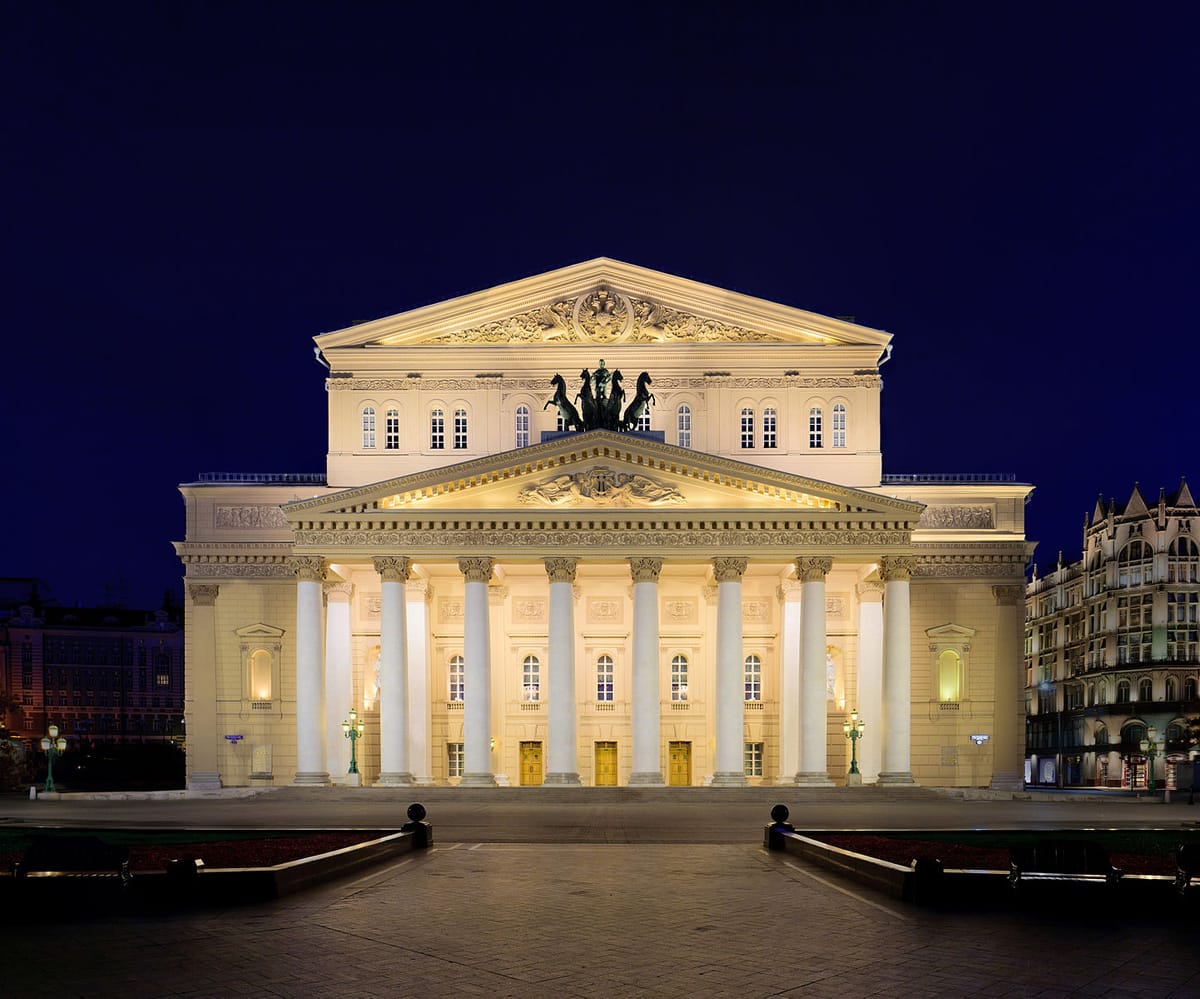The Performing Arts Dispatch: The Bolshoi Theatre

Deeply enmeshed as the arts may be in the life of a nation, few symbols of culture manage to symbolise a nation itself. The Bolshoi Theatre is that formidable badge of excellence that Russia wears with pride. The 244-year-old home to ballet and opera has been a bearer of the performing arts traditions of the country, celebrating them, nurturing them and taking them to the rest of the world, while bringing the best from the world back to its art-loving audience.
Such legends as Anna Pavlova, Maya Plisetskaya, Vaslav Nijinsky, Mikhail Baryshnikov and Galina Ulanova have been associated with the Bolshoi Ballet company for all or a part of their career while many renowned companies the world over owe their ‘seed capital’ to the Bolshoi. The historic stages of the theatre have hosted the premieres of Tchaikovsky’s operas The Voyevoda and Mazeppa and his ballet Swan Lake, Rachmaninoff’s operas Aleko and Francesca da Rimini, and Marius Petipa’s production of Don Quixote, among several other memorable performances.
In its history spanning two and a half centuries, the Bolshoi Theatre has risen like a phoenix from major fires and witnessed several political upheavals. But as with other centres of culture, a six-month hiatus enforced by a virus, whose threat still looms large, has been a unique challenge that cost the Bolshoi more than $13 million. It reopened last month, being among the first iconic venues to do so in the wake of the pandemic. Since this interview with Katerina Novikova, Head of the Press Department at the Bolshoi Theatre, the final performance of Verdi’s Don Carlo has had to be cancelled on account of international bass Ildar Abdrazakov testing positive for COVID-19 in a preliminary test – a sign perhaps of the way performance schedules will have to be altered to adapt to the dynamic situation.
Novikova tells us more about how the Bolshoi moved online during the lockdown and is treading with caution as it welcomes audiences back.
ON Stage: The Bolshoi Theatre was among the first organisations to go online with its weekly streams. How do you view Live Cinema Relays/screenings in hindsight, considering performing arts centres the world over are now looking at recording performances?
Katerina Novikova: Thanks to our 10-year collaboration with Pathé Live and Bel Air Media, we have streamed our ballet shows worldwide in cinemas [including at the NCPA] and have recordings of high quality (that include some of our opera productions recorded for television channels like Mezzo) which we have been able to share with our spectators during the pandemic – and to our mind, that is a great opportunity to be with wide audience all over the world. Surely, it cannot replace the experience of going to the theatre but it still allows the audience to enjoy Bolshoi art, to meet our artistes and to get to know our productions.
OS: What kind of preparations had to be made for the Bolshoi Theatre to reopen?
KN: The Bolshoi management planned the repertoire very carefully keeping the majority of premieres for after New Year time in the hope that the pandemic measures would be more or less over by then.
The Bolshoi Theatre opened its 245th season on 6th September with a production of Don Carlo, featuring great singers of our time Anna Netrebko, Ildar Abdarazakov as well as Yusif Eivazof, Elchin Azizov and Agunda Kulaeva, which was truly exciting. The Bolshoi Ballet, meanwhile, prepared four new pieces and their premiere took place on 10th and 11th September.
Our audience now has to wear gloves and masks and is strongly suggested to maintain social distance. Temperatures are measured at the entrance and each Bolshoi floor is equipped with all necessary facilities so audience members do not have to mingle much. In Don Carlo, we brought down the number of intervals from three to one and in our buffet, we are serving a rather limited number of beverages and snacks in disposable dishes. Of course, we cannot go full house – the box capacity has been reduced to half and in the stalls, after every two seats, one is kept empty. The advanced ventilation system on our Historic Stage is helpful. For the orchestra, we have brought in new reading stands with plastic screens. The screens are also being used for wind instruments.
OS: What are some of the key learnings during this period that will continue to guide the functioning of the Bolshoi Theatre later too?
KN: For practical reasons, we hope to return to normal life but emotionally, we have all understood how vulnerable and unpredictable life is and we cherish our chance to be with each other and create together even more. Theatre is a very special form of art – you really have to be together to create work.
By Snigdha Hasan. This piece was originally published by the National Centre for the Performing Arts, Mumbai, in the October 2020 issue of ON Stage – their monthly arts magazine.





